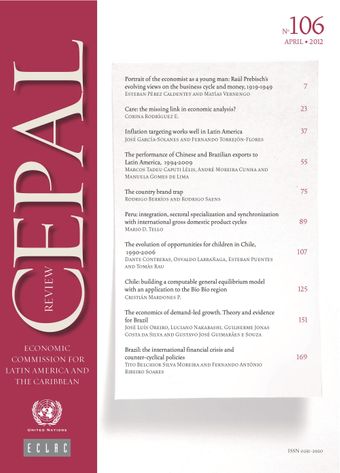-
Inflation targeting works well in Latin America
- Source: CEPAL Review, Volume 2012, Issue 106, May 2012, p. 37 - 53
- Spanish
-
- 05 May 2012
Abstract
This paper analyses the macroeconomic effects of inflation targeting (it) in five Latin American countries during the period 2000-2007. We perform three types of econometric tests, which coincide in showing that it regimes have contributed to decreasing the level and variability of both the rate of inflation and the short-term interest rate, compared with a group of non-it Latin American countries. Moreover, our empirical analysis clearly reveals that it has led to lower variability in gdp growth, but the net effects on the level of economic growth remain unclear. The main technical innovation of this paper is the estimation of a treatment effects model to solve the endogeneity problem of adopting it, which is inherently present in most of the econometric tests applied so far in this field.





